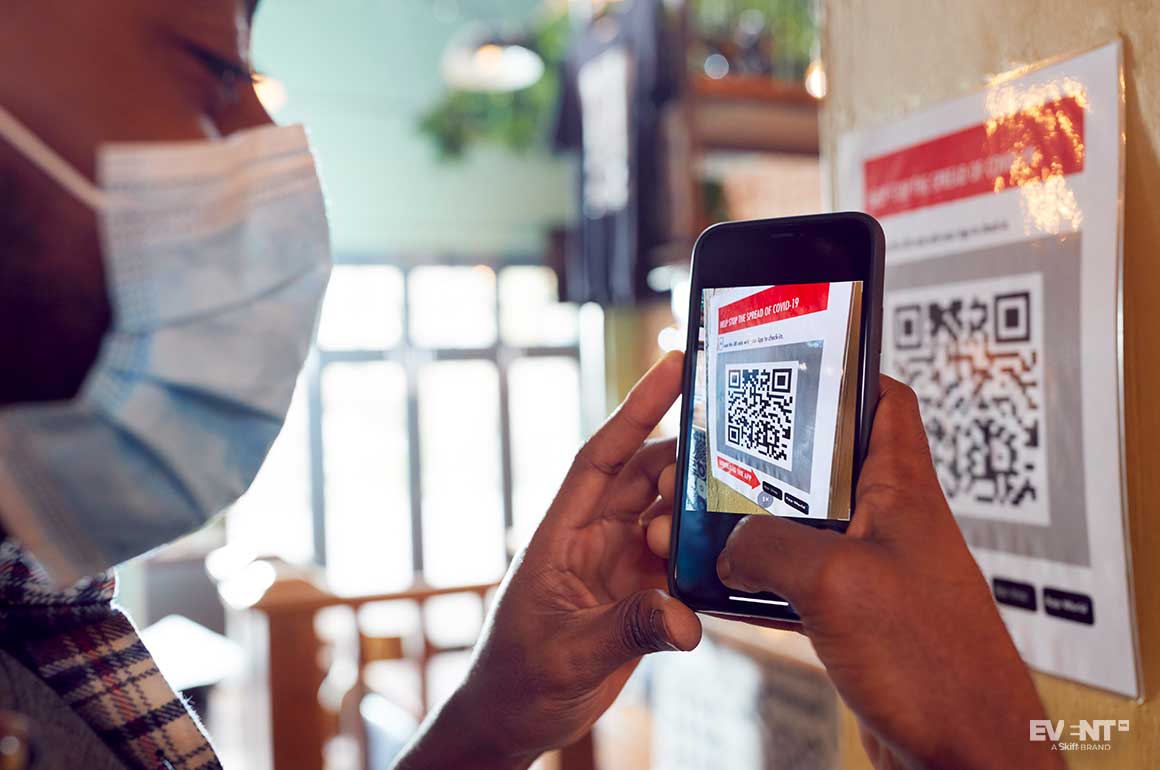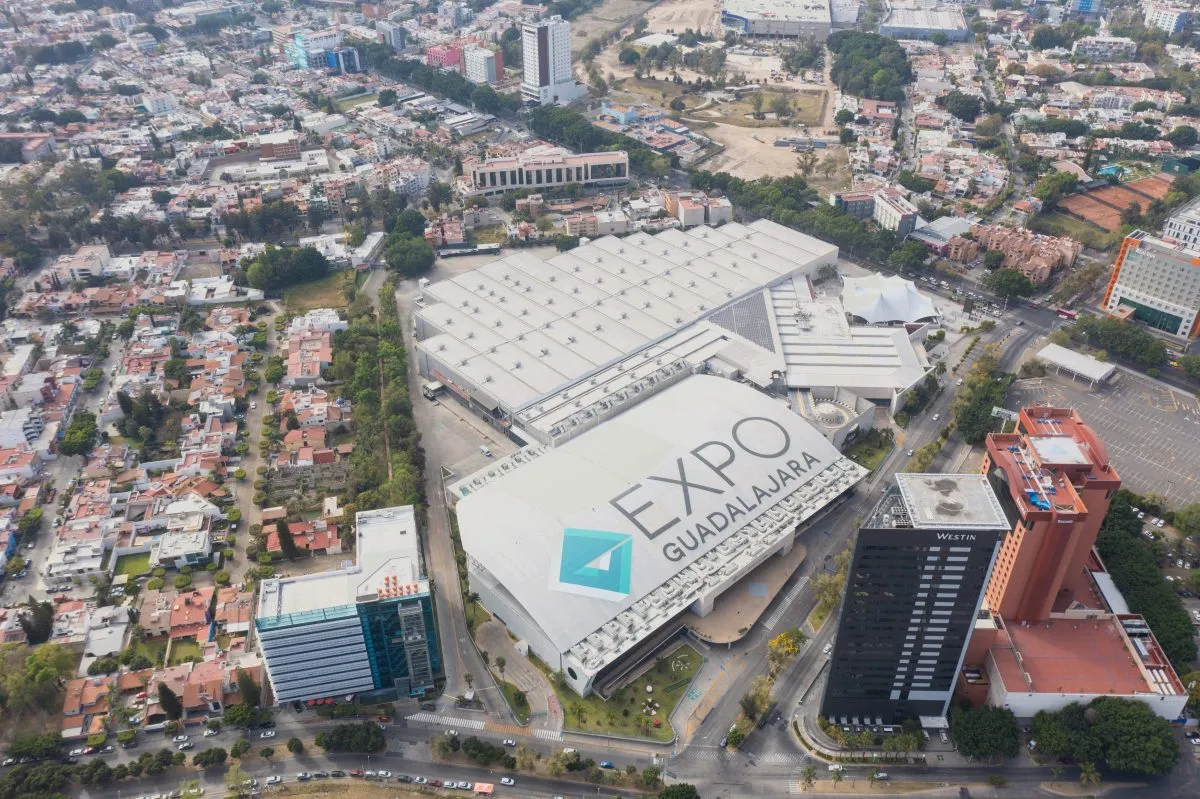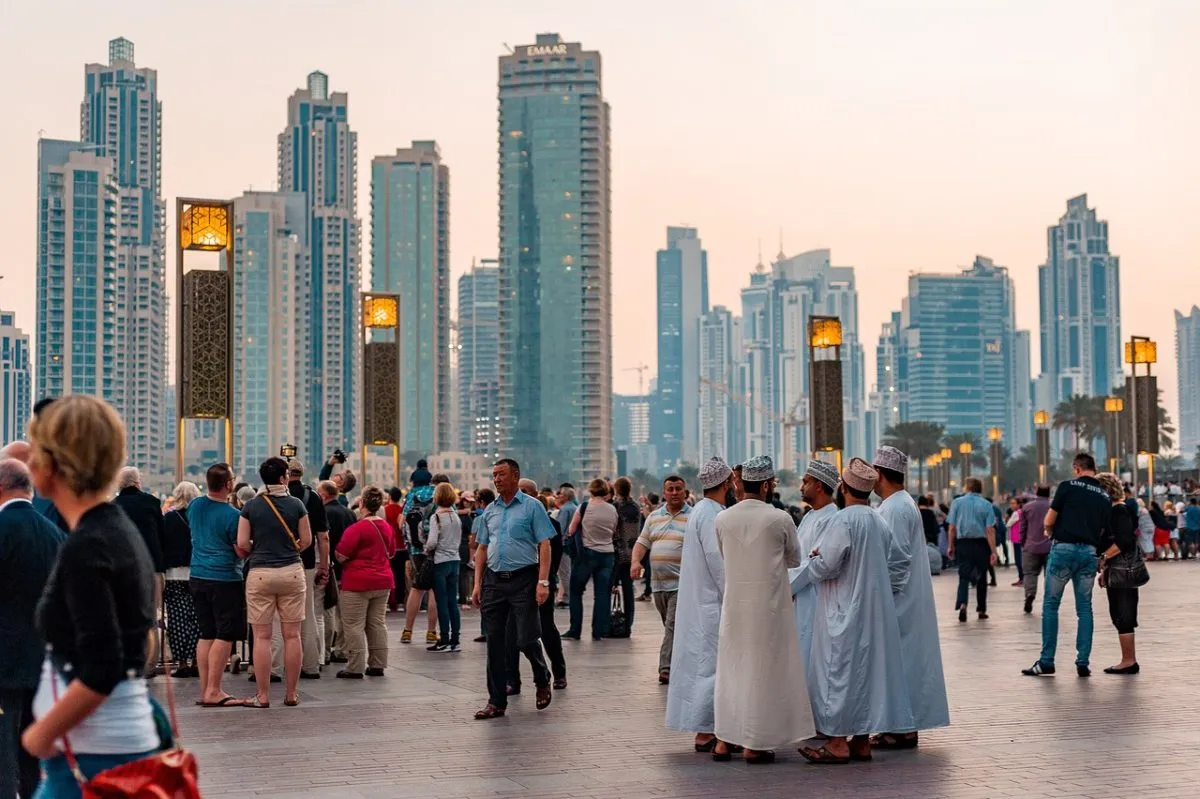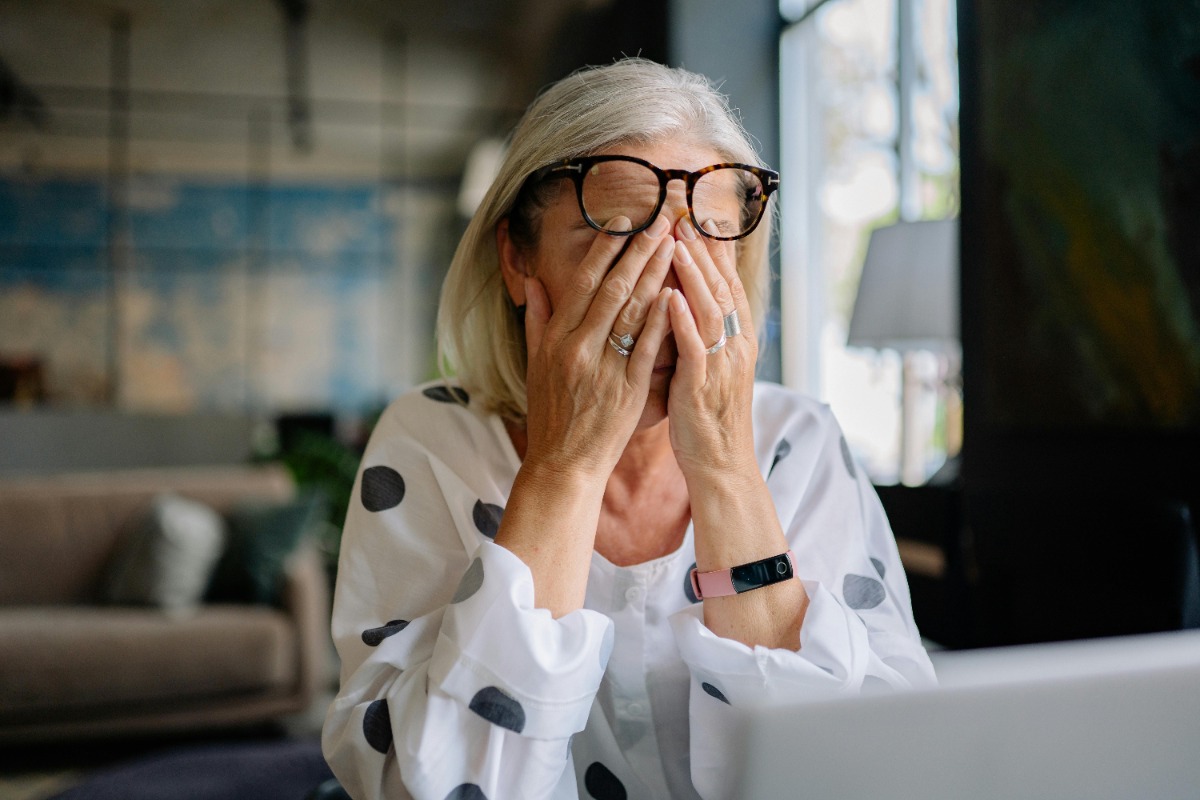What Role Will Event Apps Play in Keeping Events Safe?

Skift Take
If we can prove that forced adoption can help keep events safe, it could certainly be worth considering. On the other hand, it raises privacy and data security issues that are important to address.
Note, this is a purely hypothetical situation, but one that I think is worth considering. I posted about this on LinkedIn and Twitter, and the posts received thoughtful responses from fellow event professionals.
The Event App Adoption Challenge
Event app adoption rates are consistently a challenge for event professionals and tech companies alike. Cvent data from 2019 states the average adoption at an event to be 63 percent, while their previous report from 2017 provided a much lower figure of 48.5 percent.
If an event could have a 100 percent event app adoption rate, this would open up opportunities not only to use the technology for keeping everyone safe but also for connecting between attendees and offering sponsor visibility. It's important not to get sidetracked by abusing a pretense of safety to bolster sponsorship revenue potential; however, all impacts are worth exploring.
Key Covid-Safe Technology
Having a single piece of technology be used by everyone at an in-person event has many Covid safety advantages. Top of mind are covid test certificates, vaccine passports, social distancing, and contact tracing, but some applications may be more practicable than others. Vaccine passports are being developed all over the world, and while they are not yet ready for mass adoption, VOW Digital Health and Clear's Health Pass are two apps that are already geared up for verifying covid test results. Social distancing seems to be more challenging when it comes to accurately managing distance using mobile devices, with beacon technology offering a pricey but more reliable alternative.
Contact tracing as a feature is more promising, although it is undoubtedly not full proof. The Apple / Google partnership resulted in a privacy-preserving contact tracing exposure notification system that governments have used to build their national or regional solutions with varying degrees of success. Case in point is the UK's latest setback with their contact tracing solution blocked by Apple and Google due to location features, which neither allows.
Event Tech Experts Are Not Keen
There are good reasons for event tech providers to steer clear of developing health and safety-related features on their event apps. Firstly, as Florian Teufel, Head of Marketing at meetyoo points out, "there are apps around that do this already...where data is anonymous and integrated with the health authorities. I'd rather trust this approach."
Jelmer van Ast, Founder and CEO of Conference Compass, is not keen on event tech providers developing covid safety technology due to the many technical challenges, the potential liability and legal issues, and the substantial development costs that are hard to justify for features that will hopefully soon not be required. In an email response to the original LinkedIn post he writes, "event apps should remain clear about their purpose: to enhance the event experience by making content discovery, networking, and communication much more effective, and to bridge the on-site experience with the online/off-site experience."
James Johnson-Miller, Director Of Event Technology at IMEX, favors systems that are not mobile app-based. "You need a solution which is not reliant on native apps in case the person does not have the right device, space to install, etc. There will be delays whilst the app is downloaded on-site (as they often are) with additional resources needed to support this.
However, delays are often a temporary annoyance, and once most 2021 apps are downloaded, the benefits and experience far outweigh any initial inconvenience.
So What Role Can Event Apps Play?
There is currently little to no Covid-safety technology built into event apps, perhaps with good reason. As Thorben Grosser, EvenMobi's General Manager for Europe, pointed out in a reply to the initial Twitter post, "contact tracing apps are a thing. We don't need companies to re-invent them. We need to use them." Although he also admits in another Twitter reply that if event apps can help add data to existing contact tracing apps, this may be useful.
Nevertheless, there is an excellent case to be made for features that can streamline the additional rules and regulations involved in forthcoming in-person events. One option that may prove very useful is monitoring the number of people in any given space via Wi-Fi and Bluetooth scanning. I also see great potential for an event app-based booking system that provides instant availability reports for time slots for exhibition zones (where areas are booked in advance), exhibitor appointments or safe meeting spaces.
“If delegates pre-book a session, then when onsite receive a notification that the session is about to start (you could provide a staggered entry to ensure you do not have a crowd at the entrance) and then check people in via a beacon, RFID reader or the good old QR code.”
- Felix Stroud-Allen, Co-Founder & Director, CrowdComms
Features to consider may include:
Some of these were inspired by fielddrive's Covid safe event solutions framework.
Can We Enforce Event App Adoption?
Even if we could mandate using the app, it's not clear whether we can enforce it. Manual checks may be challenging, says Matt Coyne, co-founder of Twigged: "I would feel sorry for whoever has to be the person to ask to check someone's phone/app / Bluetooth if they're suspected of it not being on 😬." To avoid such awkward situations, passive Wi-Fi and Bluetooth scanning may offer an automated solution.
With business events considered private spaces where participants need to accept an event's policies to participate, legal issues could be surmountable. "Attending an event is always a choice. If this is one of the conditions, I see no problem with it as a short-term solution to getting people back in spaces together," said Jason Greenman, CEO of Akommo.
Should We Enforce Event App Adoption?
Just because we can doesn't mean we should. We must carefully consider GDPR and other data protection regulations before making this a condition to attendee participation. Even if enforcing event app usage was possible, the preference is always for acceptance over enforcement. “How you explain and communicate this requirement, and the reasons for it, before registration takes place and in the run-up to the event would be key to its acceptance and adoption by the attendees. Enforcing would be difficult, so acceptance is the better route." says Rob Harrison, director of Congrex Americas.
Wearable Alternatives
Wearables, RFID badges or bracelets, are an alternative for those not willing or able to use the event app, proposed Meetings and Events Consultant Marcia Ives. While wearable technology could indeed simplify the process and help safeguard against possible data privacy breaches, it would certainly limit the scope, particularly with regards to any type of booking feature or communication from attendees to the organizers that an app would handle much better.
IN CONCLUSION
With event app providers reluctant to add health and safety features to their systems, we won't be seeing integrated contact tracing or social distancing tracking. Forced adoption is unlikely; however, event apps can uniquely help us deal with some of the foreseeable health and safety restrictions of in-person events. Ultimately, if they are an essential component of the event experience, the vast majority of attendees will use them to manage their on-site experiences safely.





